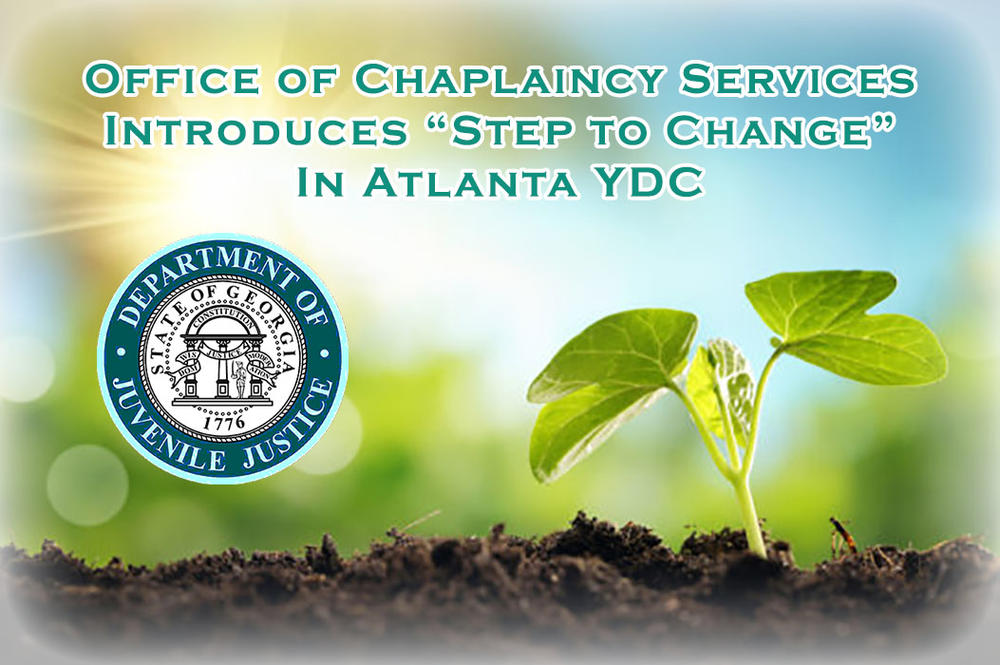
July 02, 2018
Office of Chaplaincy Services Introduces “Step to Change” at Atlanta YDC

The Office of Chaplaincy Services for the Department of Juvenile Justice (DJJ) recently piloted a ten-step program called “Step to Change”, at the Atlanta Youth Development Campus (YDC). “Step to Change” is designed for youths tried by the Superior Court and scheduled for transfer to an adult correctional facility upon their 17th birthday. An important long-range benefit of the program is to teach those young offenders how to prepare for their court hearings and how their good behavior while in custody can positively affect their parole outcomes.
The “Step to Change” program goals are set to help prepare former young offenders for safe and successful custody in adult secure facilities by teaching them accepted and expected behaviors in the new correctional environment, by using education and vocational training, and taking the necessary next steps for a productive reentry into society. The special program is aligned with the vision of Chaplaincy Services to establish hope, a commitment to community, the duty to care, and positive change through accountable and responsible leadership and service.
On June 15th, graduation ceremonies were held for DJJ youths who participated in the new “Step to Change” instruction. Assistant Commissioner Joe Vignati and Deputy Commissioner Margaret Cawood; along with Assistant Deputy Commissioners William Bellflower, Lisa Mantz, Allyson Richardson and Gary Tolar; and Director of Classification and Transportation Wendy Hix, and Director of Chaplaincy Services Danny Horne, joined with invited parents to honor the program graduates.
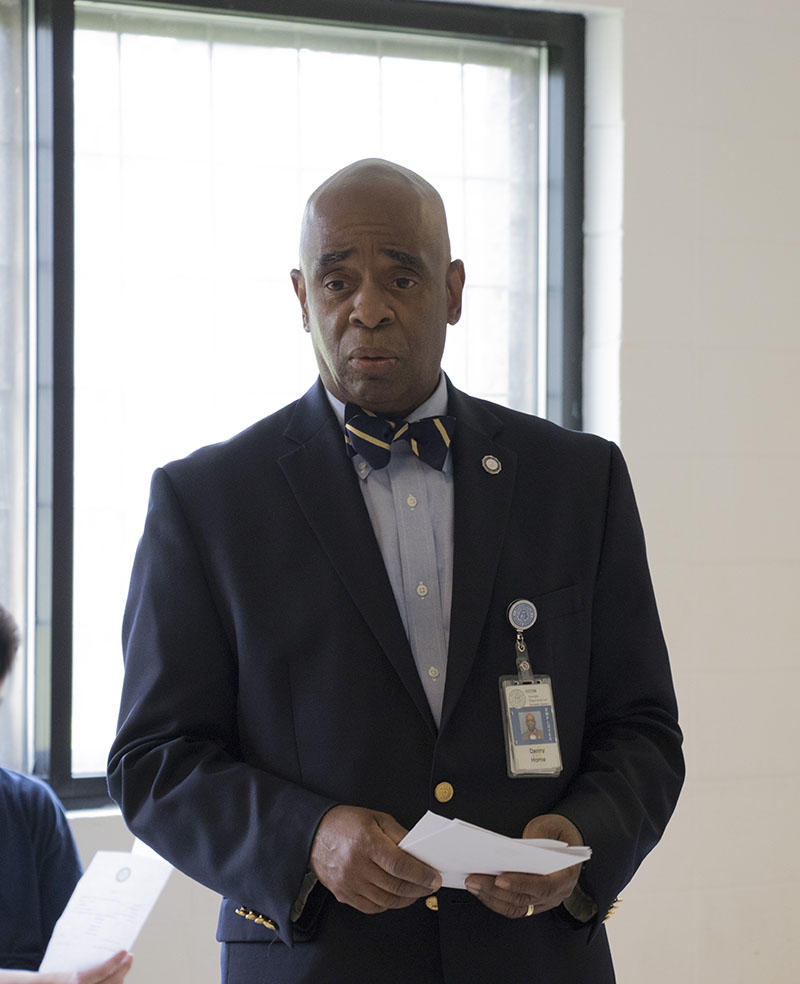
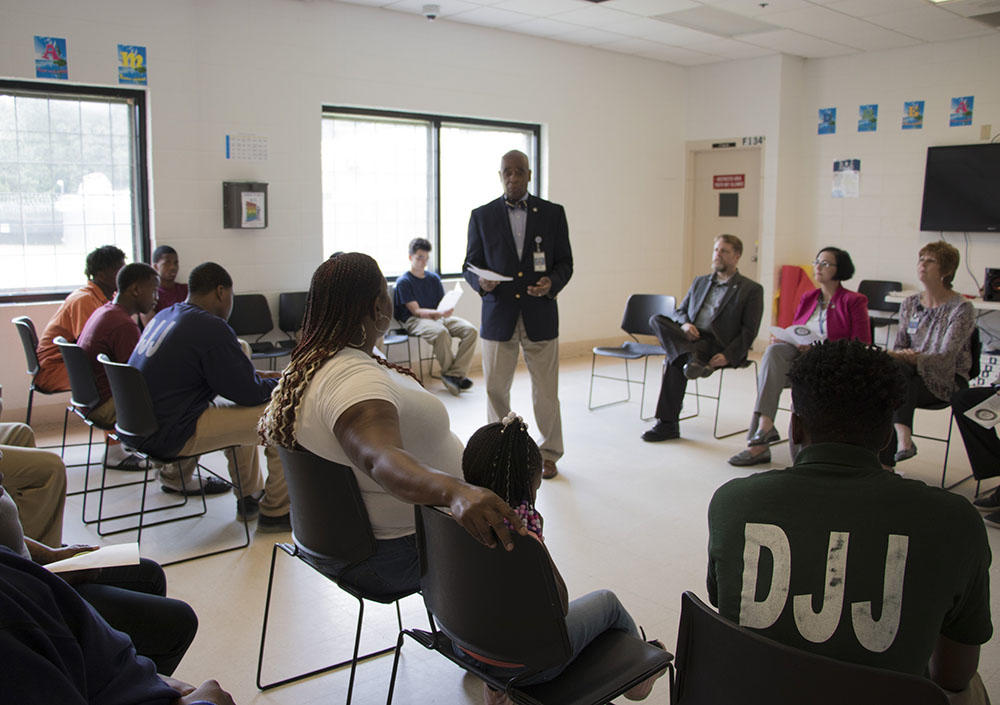
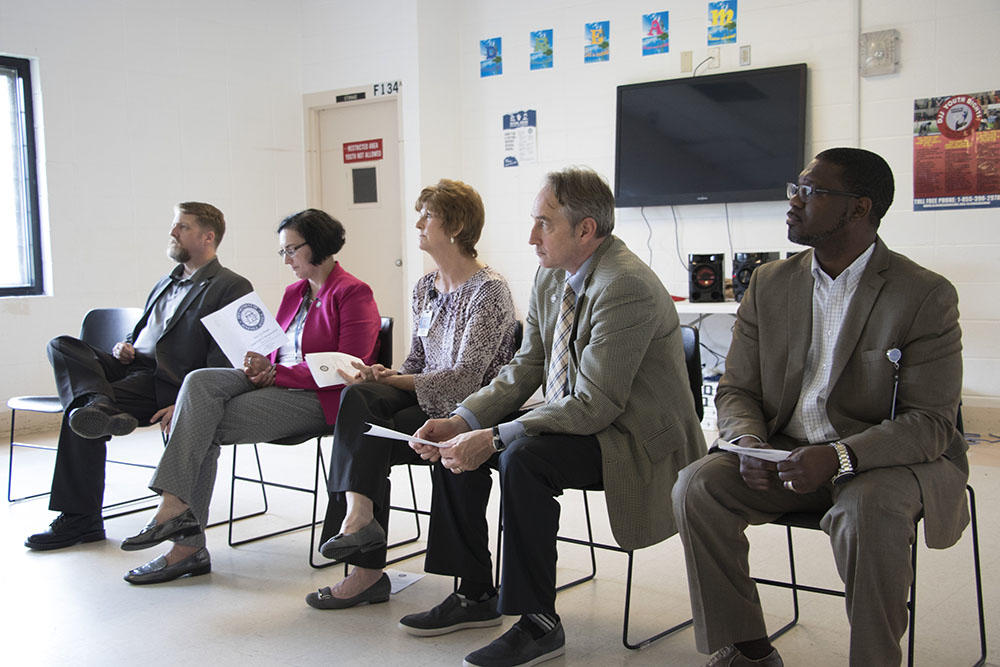
DJJ Chaplain Aakeem Woodard served as the program facilitator. “Too many of our youth see prison as some cool place to experience, or even a rite of passage from adolescence to adulthood,” Chaplain Woodard said.
“The notion that you can deter youth from staying away from criminal activity through the fear of being locked up no longer carries any weight in our society. It is crucial we change this mindset,” Woodard said. “In Step to Change, we seek to address the youths’ belief systems,” he said.
The ten-step program covers a relevant topic each week on the schedule:
Step One: “Stop, there’s a train coming” will focus on the family’s uncertainty of a child committing a crime and surviving the consequences. Youth and their families are provided guidance to dispel myths about incarceration and avoid the impact of encounters with the “emotional train”.
Step Two: The Belief Factor considers the youth’s belief system; their sense of what is good and what is bad-- and recognizing the difference-- while encouraging the youth to become the object of study in their journey through the Georgia Department of Corrections.
Step Three: Preparation will address the youth’s strategy of preparing for their eventual release and reentry, and re-integrating themselves into their family and community.
Step Four: Becoming a Thinker emphasizes the necessity of becoming a critical thinker and its impact on constructive decision-making.
Step Five: Separation connects with Step Four, requiring participants to take responsibility for decisions and choices, while understanding the ways an adult prison environment may cloud personal judgment.
Step Six: Enhancement addresses the effect of youth “growing up” behind bars and their need to develop professional and vocational skills while incarcerated; and how family members and caregivers may assist in this important step of uniting the family in the re-entry effort.
Step Seven: Becoming a Leader underscores the importance of leadership skills development as a preventative measure to protect youth from harmful situations in or outside of the prison environment.
Step Eight: Escape addresses the hope of “escape from the prison mentality” by making the decision to engage in positive thought processes with peers, through education and job skill training.
Step Nine: The Family Reunion challenges the “business as usual“ mentality among some families that will be the one-way road back to prison, while examining the effect on the family that comes with a changed youth.
Step Ten: Easy Is Not an Option addresses the hard work required to locate jobs to fit the youth’s skill set and encourages the families of juvenile offenders to support their transition to adulthood.
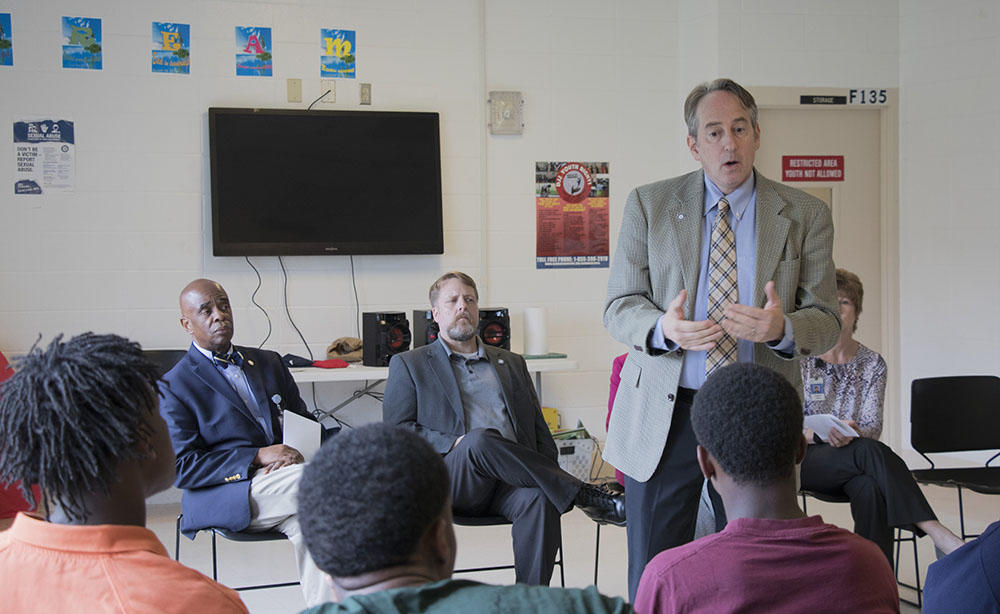
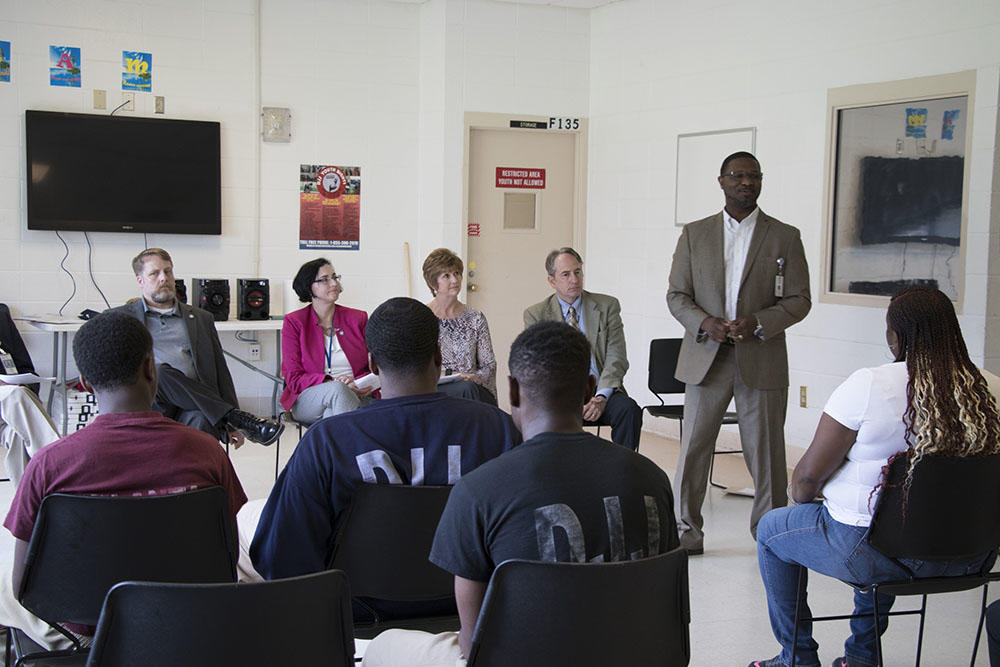

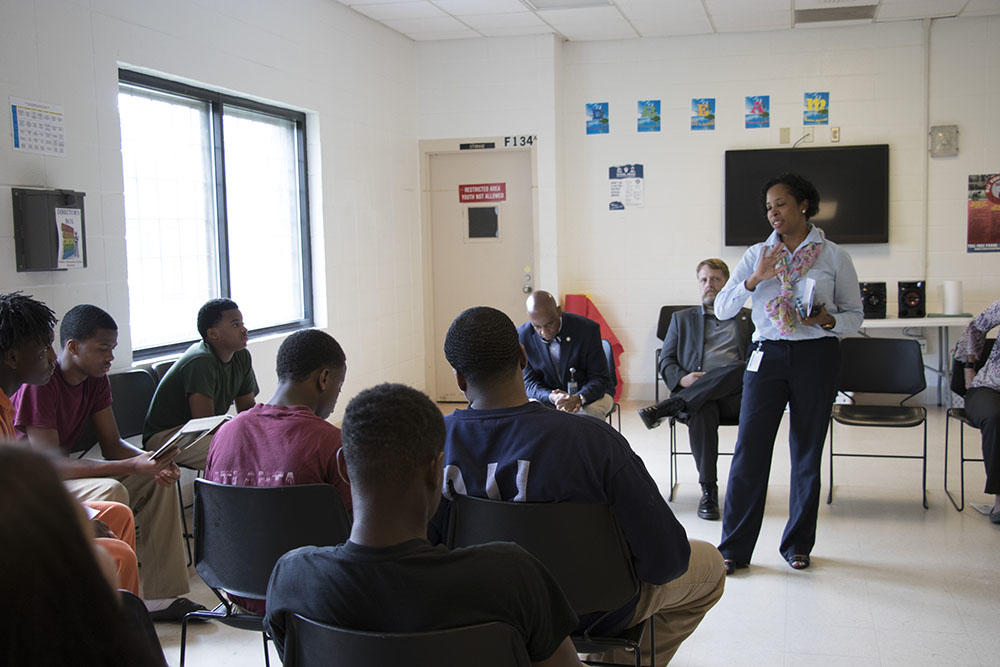

Chaplain Woodard assigned inspirational readings to program participants, including Dr. Martin Luther King, Jr.’s “Letter from the Birmingham Jail” and excerpts from Dietrich Bonhoeffer’s “Letters and Papers from Prison.” The youth then wrote their reflections and shared their thoughts with Woodard and their peers, followed by letters to their families sharing what they learned from the course.
DJJ’s Chaplaincy Services supports the Department’s mission by ensuring First Amendment Rights to religious worship and through pastoral care to youth and staff by providing counseling and support, education and crisis intervention, and spiritual guidance.
“I commend the leadership of the Office of Chaplaincy Services for putting together the Step to Change program and the positive impact it has made on our youth and community,” said DJJ Commissioner Avery D. Niles. “Even though these youths will leave our care and custody, we want to make sure we are doing everything we can to help ensure their future success.”